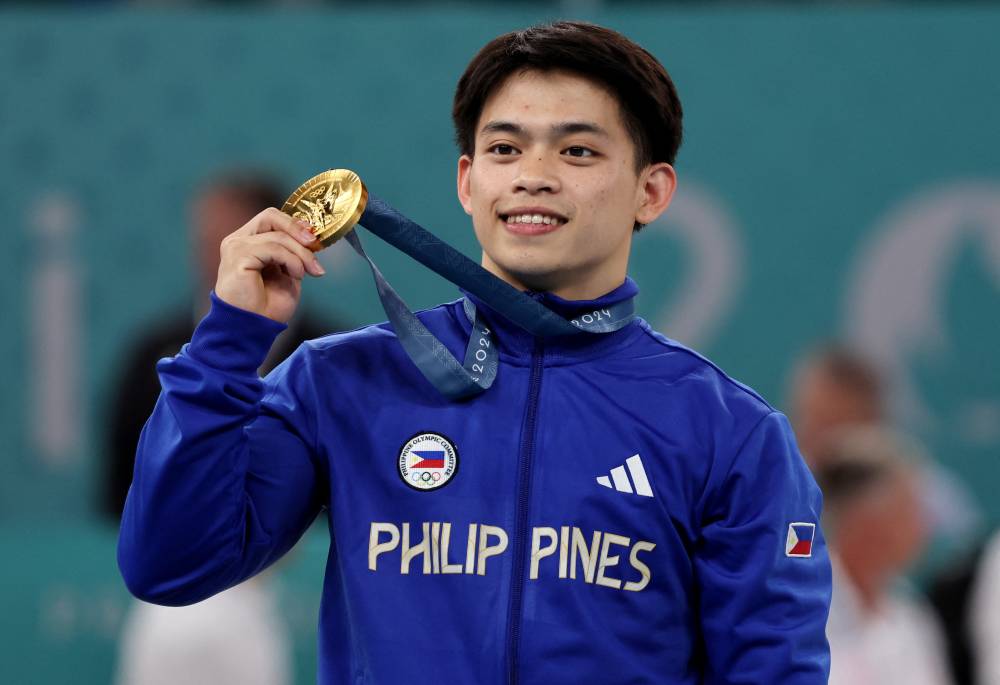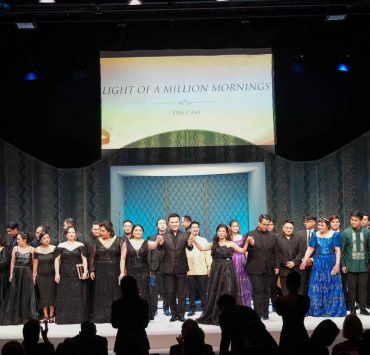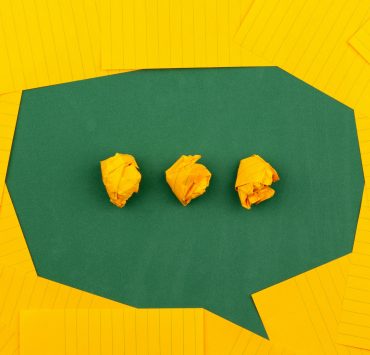Yulo’s golds for a more tangible legacy

When Hidilyn Diaz won the country’s first gold in Olympics history, she unearthed the Filipino’s long-buried capacity for greatness.
Carlos Yulo’s two-gold victory in the Paris Olympics more than just doubled down on that message. It shone a light on the blueprint sports officials drew up for the national athletes’ trip to the French capital.
“The template applied in weightlifting, gymnastics, and boxing has been tested and proven again in Paris,” said Philippine Olympic Committee president Abraham “Bambol” Tolentino, referring to the platoon of coaches, sports psychologists, physiotherapists, and nutritionists made available to national athletes.
At the heart of that master plan was the funding athletes received—this time as investment, not just bonuses.
More tangible legacy
That investment birthed a delegation that entered the Olympic Village as what sports officials declared “the most prepared Team Philippines to compete in the Summer Games.”
Tolentino even set up a one-month camp in Metz, France, for the Olympians to train in before the start of the Games.
Diaz’s triumph refueled the Filipino’s self-belief. But Yulo’s victories could result in a more tangible legacy: It could drive that that funding farther into the grassroots.
Already, calls to include gymnastics in such marquee varsity events like the University Athletic Association of the Philippines and the National Collegiate Athletic Association have erupted. But that’s nothing new. When Diaz won her gold, there was a similar clamor for weightlifting, and nothing has happened since.
Getting these ideas off the ground will require cold cash. Lots of it.
Simplistic argument
And so far, a lot of suggestions are on the table, including a malignantly distracting call to reroute the huge money spent on basketball to sports where the country can succeed internationally.
It’s a simplistic argument tethered on the misguided belief that every basketball peso pinched automatically goes to a different sport.
But there is no empirical proof that that amount of money spent on basketball is detrimental to the national sporting program.
Between 2013—when the national basketball federation spent millions to host the Fiba Asia Cup—to 2024, basketball spending reached a level unmatched in any previous decade. Combined.
That’s not just spending by the national federation, which wrote checks amounting to billions to host the Fiba World Cup in 2023. That includes spending by Philippine Basketball Association teams and the massive recruitment budgets of college programs, which include doubling already rich contracts given to players to pry them loose from their current schools.
Brighter colors
So yes, basketball spending has gone haywire in the past decade.
But do you know what else increased in that span?
Our Olympic medal haul—in quantity (on average) and in quality.
From 1924—the year the Philippines first campaigned in the Olympics—to 2012, the country collected a total of nine medals from the Summer Games. The shiniest of those medals were a pair of silvers from boxers Anthony Villanueva (1964, Tokyo) and Mansueto “Onyok” Velasco (1996, Atlanta).
In just the last three stagings of the Games, the Philippines has already matched that output, but with brighter colors: Three golds and three silvers.
Clearly, basketball spending has no negative effect on Olympic success.
Successful playbook
In fact, it can serve as an added chapter in that successful playbook designed by our sports officials.
Talent in basketball is identifiable even below the high school level. Scouts have more platforms to search for prospects outside of the yearly Palarong Pambansa, platforms even beyond the country’s borders. The Samahang Basketbol ng Pilipinas has a countrywide coaching seminar that centralizes instruction.
Basketball generates eyeballs, which generate sponsors.
Diaz did everything she could to keep weightlifting in the public’s eye. From training alongside provincial talents while preparing for a major competition, thus inspiring them with a front-row view of her process, to establishing an academy for young hopefuls.
Yulo can cement his own legacy but he needs help. From sports fans. From officials. From corporations with deep, money-lined pockets.
Our pride-heavy support for Yulo and his fellow Olympians cannot be a same-time-four-years-later love affair.
Diaz and Yulo have turned greatness into a realistic goal. Somewhere out there, there is a young talent ready to seize that greatness, with a potential we need to pay for to unlock.

















